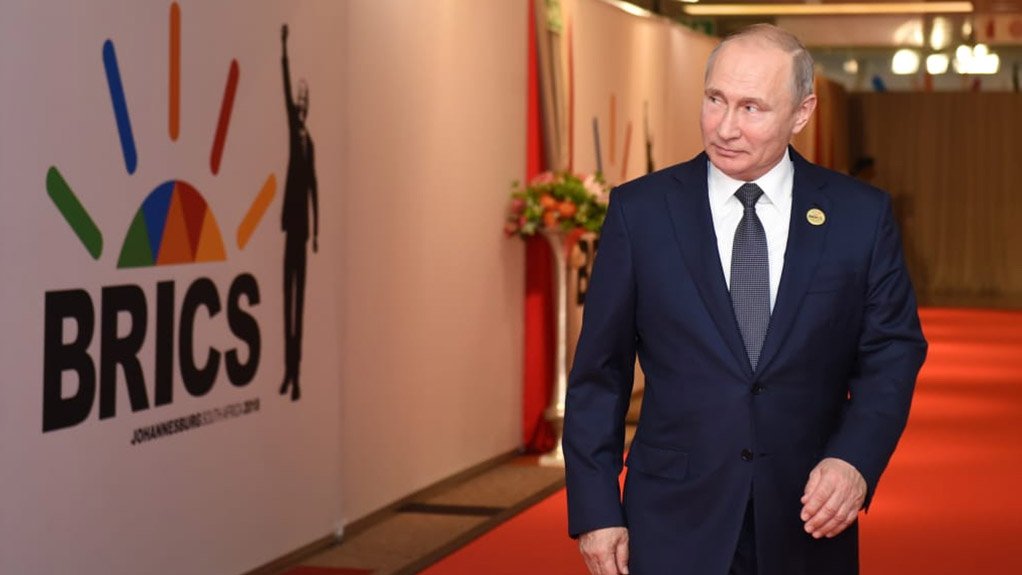World
President Putin's Attendance at the BRICS Summit in Johannesburg: Implications for the ICC's International Reputation  By Litha Theo
By Litha Theo
 July 2nd, 2023 The upcoming BRICS summit in Johannesburg, South Africa, poses a significant challenge to the International Criminal Court (ICC) and its reputation. President Vladimir Putin, who is on the ICC's wanted list for arrest, is expected to attend the summit. This essay aims to analyze the implications of President Putin's attendance on the ICC's international reputation. By examining the role of the ICC, the reasons behind President Putin's inclusion on the wanted list, and the potential consequences of his participation in the summit, we can assess the impact on the ICC's credibility and effectiveness.
July 2nd, 2023 The upcoming BRICS summit in Johannesburg, South Africa, poses a significant challenge to the International Criminal Court (ICC) and its reputation. President Vladimir Putin, who is on the ICC's wanted list for arrest, is expected to attend the summit. This essay aims to analyze the implications of President Putin's attendance on the ICC's international reputation. By examining the role of the ICC, the reasons behind President Putin's inclusion on the wanted list, and the potential consequences of his participation in the summit, we can assess the impact on the ICC's credibility and effectiveness. 
Furthermore, this essay will discuss possible measures to address these concerns and uphold the ICC's reputation as a global institution of justice.
The ICC plays a critical role in enforcing international justice and holding individuals accountable for crimes against humanity, war crimes, and genocide. However, the upcoming BRICS summit in Johannesburg has presented a unique dilemma for the ICC. President Vladimir Putin, who is wanted by the ICC, is set to attend the summit, challenging the ICC's credibility and reputation. This essay will explore the implications of President Putin's attendance on the ICC's international reputation and the potential consequences it may have on the pursuit of global justice.
The Role of the International Criminal Court (ICC):
The ICC is entrusted with the responsibility of enforcing international justice and ending impunity for serious crimes. Its mandate includes holding individuals accountable for crimes against humanity, war crimes, and genocide, while promoting peace and reconciliation through international cooperation. The credibility and effectiveness of the ICC are crucial in fulfilling its objectives, as they depend on the trust and cooperation of member states and the international community. Public perception and support for international justice also play a significant role in upholding the ICC's reputation.
President Putin's Inclusion on the ICC's Wanted List:
President Putin's inclusion on the ICC's wanted list is rooted in allegations of war crimes and crimes against humanity in relation to the conflict in Ukraine. The ICC's decision to include him on the list reflects the seriousness of these allegations and the need to hold individuals accountable for their actions. The inclusion of a prominent world leader such as President Putin poses a significant challenge for the ICC, as it tests the institution's credibility and impartiality.
Implications for the ICC's International Reputation:
President Putin's attendance at the BRICS summit despite being on the ICC's wanted list raises concerns about the ICC's international reputation. It sends a message that world leaders can potentially evade international justice without consequences. This undermines the credibility and effectiveness of the ICC's mandate and erodes the trust placed in the institution by member states and the global community.
Furthermore, President Putin's attendance may overshadow the important work carried out by the ICC, diverting attention away from ongoing investigations and trials. This distraction could lead to a loss of public support for international justice and diminish the ICC's ability to garner cooperation and resources necessary for its operations.
Measures to Address Concerns and Uphold the ICC's Reputation:
To mitigate the potential damage to its reputation, the ICC should communicate its concerns and reiterate its commitment to pursuing justice impartially and without political interference. It should emphasize that inclusion on the wanted list is based on credible evidence and due process, and that all individuals, regardless of their position, should be held accountable for their alleged crimes.
Moreover, the ICC should engage in diplomatic efforts with member states, including South Africa, to express its concerns and seek assurances that the principles of justice and accountability will not be compromised. These discussions can highlight the importance of upholding the integrity of international justice systems and the shared responsibility to combat impunity for serious crimes.
Conclusion:
President Putin's attendance at the BRICS summit despite being on the ICC's wanted list poses significant challenges to the
ICC's international reputation. It raises concerns about the institution's credibility, impartiality, and effectiveness. To address these concerns, the ICC should assert its commitment to pursuing justice and accountability without political interference. Engaging in diplomatic efforts with member states can also help safeguard the ICC's integrity and promote the principles of international justice. It is crucial to uphold the ICC's reputation as a global institution of justice and ensure that accountability for serious crimes remains a cornerstone of international law.
Facebook
WhatsApp

 By Litha Theo
By Litha Theo  July 2nd, 2023
July 2nd, 2023 